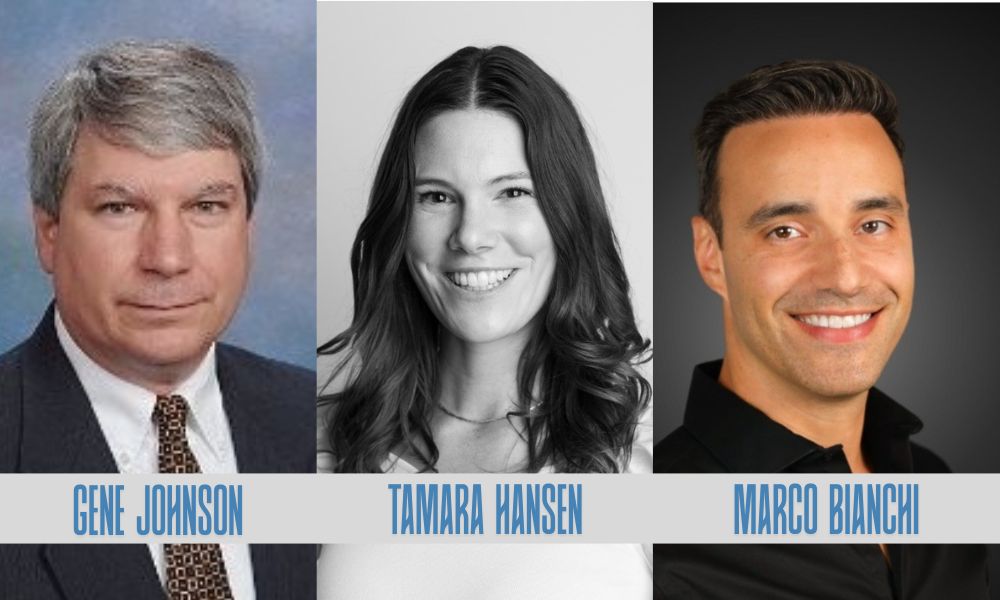They are part air traffic controllers, part transit cops, with the skills of symphony composer thrown in for good measure. They mediate disagreements and attempt to keep the pace of conversations lively so audiences remain engaged. And they must prepare given the wide range of topics and experiences they encounter.
They are the moderators who control the ebb and flow of panel discussions at conferences. Without them, panel discussions would descend into chaos.
“You know what the conference organizer is trying to accomplish. Often, they’re not well written, but understanding the goal and then use the tools at your at your disposal, the panelists and the discussion itself, to attain those goals,” Victor Strategies Executive Vice President Gene Johnson said during a CDC Roundtable discussion. “And I think the number one thing is to find truth, discover insights, knowledge, and benefit the client, which in the case of a panel discussion, is the audience.”
Tamara Hansen, NRT Director of Sales, says her goal is to get everyone on the same page – aligning everyone as a team – when she moderates a panel.
“Everyone, oftentimes, is either coming from competitive companies or maybe they’re competitive operators, or they’re a mix of both, and not always playing nice in the sandbox,” she says. “And so, I think the goal really is to find that common thread of alignment and try to get everyone on the same team, make sure you’re all working towards the same mission and purpose, which is ultimately adding as much value as you can for that audience, for those people sitting in that room.”
Providing value comes by way of preparation. Marco Bianchi, BC Ventures Co-Founder and Senior Vice President, Operations, says that when hosting a session, it’s instructive to remember that the time spent on stage is fleeting.
“It’s reminding myself that it’s a sprint not a marathon,” Bianchi says. “When preparing for a session, you may think 45 minutes is a long time to hold a conversation. Well, time flies. It’s your job to extract as much value from it.”
Bianchi says that preparation is necessary, but it’s important not to over prepare.
“You need bullet points, not a script, and that’s what will lead you to truly extract the best stories, points of view, differing opinions and perspectives on an issue,” Bianchi adds.
Hansen prepares by researching the panelists, learning about their experiences and core competencies, their strengths and areas of expertise.
“You’re like a conductor trying to get them all to coordinate at different times and pull on that,” Hansen says. “I think the more time you understand the value of what’s in front of you from the talent and expertise, the better you can kind of freestyle in that moment and extract those key nuggets more concisely, knowing the lay of the land and who you’re working with.”
Johnson, however, tends to overprepare, drawing from his background in qualitative research. He produces a two-page guide as a foundation for discussions.
“It’s not a script I’m going to follow, it’s background,” Johnson says. “You want to understand the different points of view, the different panelists, and try to meld that into a coherent agenda that will take you through that first five minutes.”
Bianchi says his goal is to create “connective tissue” on panels. He’ll conduct video prep meetings, if possible, to create chemistry among panelists.
But Bianchi often goes the extra mile to get ready.
“If everyone’s arrived early the morning, or late morning, we’ll have a little coffee together,” Bianchi says. “For one of my recent ones, we decided to have lunch together. It was folks that hadn’t necessarily sat down with one another … and trust me that really made all the difference, because we showed up with a little bit of extra warmth, and folks were able to relate a lot easier.”
There are times, however, when panelists dominate a conversation. Hansen says there are those who “love to hear the sound of their own voice.” To be fair, Hansen adds, many of those folks are not trained public speakers and need guidance.
But Johnson says a moderator also must act as “the adult in the room.” At one conference he handed the microphone to a panelist and “it never made it any further.”
“You have to control the discussion,” Johnson said, noting that Indian Gaming Association Conference Chair Victor Rocha has been known to “cut someone to shreds” for dominating a panel.
“There are times when you actually have to do that,” Johnson says. “It’s rare, but you shut them down, essentially, and you can do that by shaming them publicly. And if that doesn’t work, you don’t, call on them again.”
“You don’t want to let any one participant dominate,” Johnson adds. “You want to have equal time for everybody. But you also want to create dynamics. You want some contention. You don’t want everyone agreeing on the same topic. And the best discussions that I have had is where you really get a thesis, an antithesis, and a synthesis coming out of the discussion where people on the panel are learning because they’re in an active, dynamic discussion with somebody who has a different opinion.”




